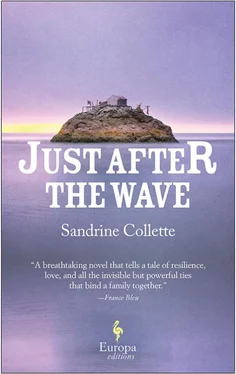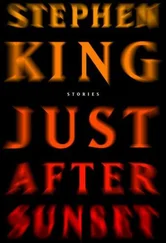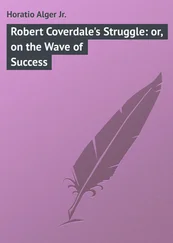“She’s been crying for a while.”
She doesn’t stop.
And the pain, has it stopped?
Noah asks: Are you all right?
“Shut up,” scolds Louie.
They watch her in despair. Louie spreads his hands as if they could do something—an idea, a miracle; he keeps them open on his lap. Noah blows gently onto his sister’s face. It was their mother who taught them to do this, when one of them would fall, or bang himself, or scratch herself, she would blow on the hurt, and the suffering would abate, disappear. He leans closer:
“Does that feel better?”
The little girl shakes her head, does not stop crying; Noah is not Madie. Louie gently lifts off the cloth, soaks it with fresh water, replaces it. Gradually night has fallen and he can no longer see her wounded face. But Perrine’s moans haunt them until dawn; she sleeps intermittently—and then Louie can feel his nerves let go, and fatigue gets the better of him. He opens his eyes the moment she starts to sob again. In a quiet voice he says, I’m here . And then these stupid, senseless words: We’ll find a doctor for your eyes.
In the early morning, while Perrine is sleeping, as the cloth has slipped to the floor, he looks—and immediately turns away. Perrine’s good eye, the one most damaged by the hens, is swollen and red, oozing a yellowish pus between her lashes. But Louie does what he can, pours some water to clean it a little; and even though he expected it, he is startled by his sister’s cry as she wakes.
“It’s all right,” he murmurs, “I’m not touching it, it’s just water. Here’s the cloth. Put it on if you want.”
Before they raise the anchor he gets out some breakfast, but Perrine doesn’t want anything to eat or to drink, she moans, complains of the heat— The heat? says Noah with surprise, for he put on a sweater against the chill from the storm.
Louie puts his hand on her brow, and it is too hot.
He knows this isn’t a good sign.
Folded on himself, he holds his head between his elbows. There are too many problems in his head, too many things he cannot deal with, this wound to take care of, the land that isn’t there, his little sister’s tears piercing him to the bone.
Where are they, now that the storm has turned them every which way, ruining all their efforts, their nonexistent landmarks, the hopes they had raised to keep going?
So Louie reaches for the oars.
Tells Noah: She has to drink. We have to make her drink.
And he pulls hard on the oars.
That’s all they can do: go forward. He says it to himself all day long, except for the moments when he stops to straighten his back and relax his tetanized arms, when he manages to convince Perrine to eat half an egg, then nothing more, so this is really the only thing he has left, to go on, with his lower lids burning from holding back his own tears, because his sister’s tears are breaking his heart, he can’t stand it, and he no longer knows the way to the coast.
This void inside him is a chasm spilling out of his body, and the boat, and the sea; a hollow that goes right to the bottom of the world, where even the seabed has vanished, and the rock is hot, so close to the core of the earth. That is where Louie would like to be, curled up in an inaccessible recess, deaf to every lament and every pain, alone if he must be, not to go completely mad, if it’s not too late. Alone, and have done with it.
No one left on earth.
So between the drops of sweat that sting his eyes, he looks at Noah kneeling by Perrine, and he wonders if that is not the solution.
Have done with it.
“What?” says Noah.
Louie said it out loud. He bites his lips.
“Nothing.”
Knock the two of them out and drown them. Afterwards he will tie himself to the anchor with a rope and let it unwind. He imagines it. Going straight to the bottom.
No more children.
No more suffering.
The thought runs through him like an electric shock.
No.
And suddenly, Noah screaming and turning to him.
“There! There!”
Louie drops the oar with surprise, and it falls with a bang onto the seat and rebounds against his leg. He makes a face. Doesn’t even hurt.
Noah’s face, between exaltation and madness: You see it?
So Louie leans closer, all thoughts erased. And yes, he sees it.
“What… what is it?”
“Dunno. A rock? A house, maybe?”
“It’s little, looks like.”
“Can we go there, Louie? Let’s row there?”
No.
He looks at Perrine, motionless on the floorboards.
“No noise, then. We don’t know who lives there.”
Without a word, they reach for the oars. There is renewed vigor to their gestures, urgency, too, because of the little girl who has a fever and who has stopped talking, and their urgency is mixed with apprehension, more than that, a dread which is twisting Louie’s guts—will they find someone on that island in the distance, someone who will be ready to help them, or will they be killed for the boat and the food, and the water and the hens. Louie stops thinking: for now, they are going forward. And yet in his gestures, as they get closer, something is slowing him, imperceptibly, his fear is too great, there is superstition, too, will their luck see them through. Noah, on the other hand, is rowing diligently, his eyes staring at the horizon. The two brothers keep watch on the sea. A sort of latent instinct reminds them that the sea is all the more treacherous just when they think they might be about to escape, and that the traps are always laid for them just when they think they’re home safe. But the storm the night before has cooled the temperature, and, before night turned it gray, the sky wore a sparkling blue. Still, they are wary, they study the water all around them, the eddies, the currents they think they can see. Their hearts and throats constrict whenever they get the impression the sea is changing—uneasy, rising. In spite of their fear, they are so eager to reach the island that the air fills with their hopes and seems to vibrate in their eyes and ears; they want it to bring them luck. They have no choice: they have to save Perrine. Urgency transcends all their hesitancy, their fear, the trembling in their arms. Taking turns, they encourage their sister; she doesn’t answer.
“We’re nearly there.”
“We’re going to make you better.”
But just when they finally understand what is there ahead on the water, they look at each other, stunned. Noah murmurs,
“Are those… houses?”
He doesn’t say, Floating houses , but that was what sprang to mind. And only one of the houses is still above water, the other two, closer to them, are almost completely engulfed. All that is left of the first one is the roof, and they can see the upstairs windows of the second one.
“Yes,” says Louie in a low voice. “Houses.”
The third house, the one they can see from behind, and where they are headed, floats above, with a long wooden terrace level with the water, which makes it look as if it is sailing on the ocean. For a few moments they get the impression it is coming toward them, drifting, trundling along, and they pause to take a good look.
There are two figures on the terrace.
Louie and Noah both recoil, instinctively; What do we do? Louie starts to scan the surface of the sea, his heart pounding, looking for a wave, a current betraying some invisible presence, gliding through the water, he is already holding his oar aloft, he feels this throbbing inside him, too insistent.
But then he glances down, the same image as before, little Perrine asleep with the cloth over her eyes, her moans and sobs stifled by fever. And Louie makes up his mind all at once.
Читать дальше












